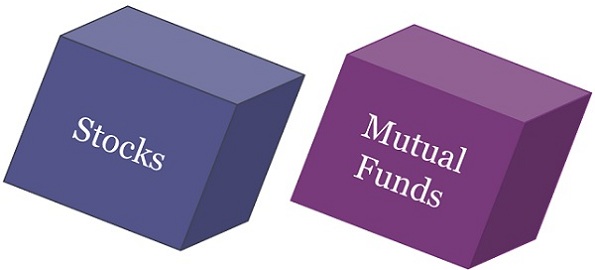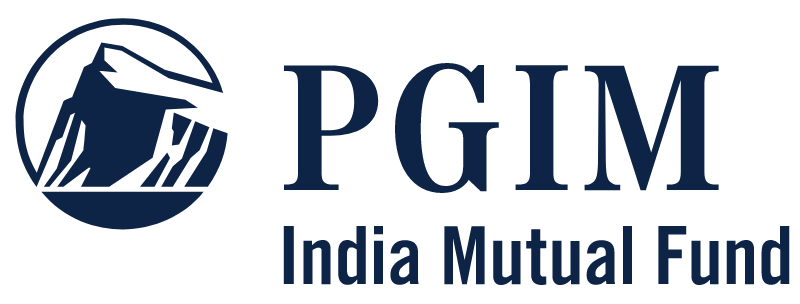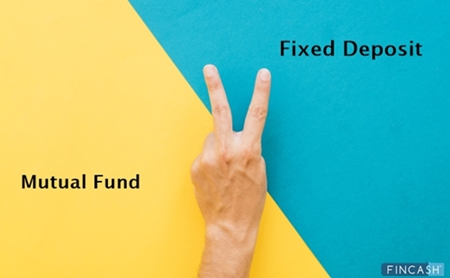Mutual Funds Vs Stocks
Mutual Funds or stock markets directly – where to invest, is one of the oldest debates when it comes to personal Wealth Management. Mutual funds allow you to invest a certain amount in a fund where the fund managers use their expertise to invest a client’s money in a variety of stocks to achieve the highest rate of return. Investing in stock markets gives you greater control over the investment on shares is made by the user. However, it makes them more prone to risks as they have to directly deal with the markets.
Difference: Mutual Funds Vs Stocks/Shares
1. Understanding Mutual Funds and Stocks
When compared on a risk Factor, stocks happen to be far riskier than mutual funds. The risk in mutual funds is spread across and hence reduced with the pooling in of diverse stocks. With stock,s one has to extensive research before investing, especially if you are a novice investor. Visit fincash for more details on the various areas of investments. In the case of mutual funds, the research is done, and the fund is managed by a mutual fund manager.

This service though is not free and comes with an annual Management Fee that is charged by the fund house under Total Expense Ration (TER).
2. When investing as a beginner
If you are a new investor with little or no experience in the financial markets, it is advisable to start with mutual funds as not only the risk is comparatively lesser but also because the decisions are made by an expert. These professionals have the insight to analyze and interpret financial data to gauge the outlook of a prospective investment.
3. Associated Costs
Though you have to pay a fee to mutual fund managers unlike in the case of stocks that you buy individually, the Economies of Scale also come into play. It is true that active management of funds is an affair that does not come free of cost. But the truth is that due to their large size, mutual funds pay only a small fraction of the brokerage charges that an individual shareholder pays for brokerage. Individual investors also have to pay the charges for DEMAT which is not needed in the case of mutual funds.
4. Risk and Return
It is already established that mutual funds have the advantage of reducing the risk by diversifying a Portfolio.

Stocks on the other hand are vulnerable to the Market conditions and the performance of one stock can’t compensate for the other.
5. Short Term Capital Gain
Remember when investing in stocks, you will be liable to pay 15 percent tax on your short term Capital gains (STCG) if you sell your stocks within a span of one year. On the other hand, there is no tax on capital gains on the stocks that are sold by the fund. This can mean substantial benefits for you. The tax saved is also available for you to invest it further thus making way for further Income generation through investment. But you will have to hold on to your equity for more than a year in order to avoid paying that short-term capital gains tax.
6. Long Term Capital Gain
Long Term Capital Gain (LTCG) is taxed at 10% for gains exceeding 1 Lakh gain (As announced in Budget of 2018). which means one has to pay tax on gains incurred in period over an year (Long term) if amount exceeds 1 Lakhs in a year at a Flat rate of 10%.
7. Control on your investment
In the case of mutual funds, the decision pertaining to the choice of stocks and their trading is solely in the hands of the funds manager. You do not have control over which stock is to be picked and for what duration. As an investor, if you invest in Mutual Funds you do not have the option to exit from some stocks that are in your portfolio. The decisions pertaining to the fate of the stocks rest in the hands of the fund manager. This way, an individual investing in stocks has more control over their investment than an investor who invests in mutual funds.
8. Diversification
A well-diversified portfolio should include at least 25 to 30 stocks but that would be a huge ask for a small investor. With mutual funds, investors with small funds can also get a diversified portfolio. Buying units of a fund allows you to invest in multiple stocks without having to invest a huge corpus.
Talk to our investment specialist
9. Time and Research
When you invest directly, you will need to invest a lot more time and research into your stock while in the case of mutual funds you can be passive. The fund manager is the one who invests his time to manage your portfolio.
10. Investment Tracking
With an investment in mutual funds, you have the benefit of a fund manager who has extensive expertise and experience in the field. Whether it is picking the stocks or monitoring them and making allocations, you do not have to worry about any of it. This service is not available in the case of stock investments. You are responsible for picking and tracking your investment.
11. Investment Horizon
When investing in mutual funds, remember that you will have to give the funds at least 8-10 years to generate good returns as these have a longer-term growth trajectory. In the case of stocks, you can get quick and good returns if you choose the right stocks and sell them at the right time.
Despite all of this if the stock market and its intricacies are something that an individual is familiar with, they can invest directly. They must be ready to play a long term game where a stock doesn’t provide immediate returns and must also have an increased appetite for risk. Unlike investors in mutual funds, they do not have the expertise on Smart investment which fund managers can provide. Even in the best of times, investment in stocks is a risk. In comparatively tougher times, it is better to invest in mutual funds due to the advantage of portfolio diversification, professional management and constant monitoring.
The choice between mutual funds or stocks generally boils down to personal factors like trust and an individual’s ability to take risks. It is a decision to be taken with the utmost of thought with all the options carefully weighed down. However what is important for an individual is the decision to plunge into personal wealth management and attempt to make their savings useful through either mutual funds or stocks, rather than simply sitting on it.
Top Equity MF investments FY 25 - 26
Fund NAV Net Assets (Cr) 3 MO (%) 6 MO (%) 1 YR (%) 3 YR (%) 5 YR (%) 2024 (%) ICICI Prudential Infrastructure Fund Growth ₹193.64
↑ 0.93 ₹8,232 0.8 -2.4 -1.1 23.9 30.6 27.4 Motilal Oswal Midcap 30 Fund Growth ₹100.407
↓ -0.09 ₹37,501 -3.2 -1 -11.3 23.8 28.9 57.1 SBI PSU Fund Growth ₹32.7162
↑ 0.09 ₹5,714 6.1 0.5 -0.3 26 28.4 23.5 Note: Returns up to 1 year are on absolute basis & more than 1 year are on CAGR basis. as on 9 Dec 25 Research Highlights & Commentary of 3 Funds showcased
Commentary ICICI Prudential Infrastructure Fund Motilal Oswal Midcap 30 Fund SBI PSU Fund Point 1 Lower mid AUM (₹8,232 Cr). Highest AUM (₹37,501 Cr). Bottom quartile AUM (₹5,714 Cr). Point 2 Oldest track record among peers (20 yrs). Established history (11+ yrs). Established history (15+ yrs). Point 3 Top rated. Rating: 3★ (lower mid). Rating: 2★ (bottom quartile). Point 4 Risk profile: High. Risk profile: Moderately High. Risk profile: High. Point 5 5Y return: 30.58% (upper mid). 5Y return: 28.86% (lower mid). 5Y return: 28.38% (bottom quartile). Point 6 3Y return: 23.88% (lower mid). 3Y return: 23.80% (bottom quartile). 3Y return: 25.98% (upper mid). Point 7 1Y return: -1.06% (lower mid). 1Y return: -11.31% (bottom quartile). 1Y return: -0.33% (upper mid). Point 8 Alpha: 0.00 (upper mid). Alpha: -4.22 (bottom quartile). Alpha: -0.58 (lower mid). Point 9 Sharpe: 0.00 (lower mid). Sharpe: -0.13 (bottom quartile). Sharpe: 0.09 (upper mid). Point 10 Information ratio: 0.00 (lower mid). Information ratio: 0.20 (upper mid). Information ratio: -0.57 (bottom quartile). ICICI Prudential Infrastructure Fund
Motilal Oswal Midcap 30 Fund
SBI PSU Fund
*Below is the list of best mutual funds based on 5 year CAGR/Annualized and AUM > 100 Crore.
To generate capital appreciation and income distribution to unit holders by investing predominantly in equity/equity related securities of the companies belonging to the infrastructure development and balance in debt securities and money market instruments. Research Highlights for ICICI Prudential Infrastructure Fund Below is the key information for ICICI Prudential Infrastructure Fund Returns up to 1 year are on (Erstwhile Motilal Oswal MOSt Focused Midcap 30 Fund) The investment objective of the Scheme is to achieve long term capital appreciation by investing in a maximum of 30 quality mid-cap companies having long-term competitive advantages and potential for growth. However, there can be no assurance or guarantee that the investment objective of the Scheme would be achieved. Research Highlights for Motilal Oswal Midcap 30 Fund Below is the key information for Motilal Oswal Midcap 30 Fund Returns up to 1 year are on The objective of the scheme would be to provide investors with opportunities for long-term growth in capital along with the liquidity of an open-ended scheme through an active management of investments in a diversified basket of equity stocks of domestic Public Sector Undertakings and in debt and money market instruments issued by PSUs AND others. Research Highlights for SBI PSU Fund Below is the key information for SBI PSU Fund Returns up to 1 year are on 1. ICICI Prudential Infrastructure Fund
ICICI Prudential Infrastructure Fund
Growth Launch Date 31 Aug 05 NAV (09 Dec 25) ₹193.64 ↑ 0.93 (0.48 %) Net Assets (Cr) ₹8,232 on 31 Oct 25 Category Equity - Sectoral AMC ICICI Prudential Asset Management Company Limited Rating ☆☆☆ Risk High Expense Ratio 1.89 Sharpe Ratio 0 Information Ratio 0 Alpha Ratio 0 Min Investment 5,000 Min SIP Investment 100 Exit Load 0-1 Years (1%),1 Years and above(NIL) Growth of 10,000 investment over the years.
Date Value 30 Nov 20 ₹10,000 30 Nov 21 ₹16,536 30 Nov 22 ₹21,423 30 Nov 23 ₹28,347 30 Nov 24 ₹40,177 30 Nov 25 ₹42,083 Returns for ICICI Prudential Infrastructure Fund
absolute basis & more than 1 year are on CAGR (Compound Annual Growth Rate) basis. as on 9 Dec 25 Duration Returns 1 Month -2.4% 3 Month 0.8% 6 Month -2.4% 1 Year -1.1% 3 Year 23.9% 5 Year 30.6% 10 Year 15 Year Since launch 15.7% Historical performance (Yearly) on absolute basis
Year Returns 2024 27.4% 2023 44.6% 2022 28.8% 2021 50.1% 2020 3.6% 2019 2.6% 2018 -14% 2017 40.8% 2016 2% 2015 -3.4% Fund Manager information for ICICI Prudential Infrastructure Fund
Name Since Tenure Ihab Dalwai 3 Jun 17 8.42 Yr. Sharmila D’mello 30 Jun 22 3.34 Yr. Data below for ICICI Prudential Infrastructure Fund as on 31 Oct 25
Equity Sector Allocation
Sector Value Industrials 38.24% Financial Services 14.97% Basic Materials 12.93% Energy 10.52% Utility 10.49% Real Estate 2.69% Consumer Cyclical 1.96% Communication Services 1.25% Asset Allocation
Asset Class Value Cash 5.98% Equity 93.94% Debt 0.08% Top Securities Holdings / Portfolio
Name Holding Value Quantity Larsen & Toubro Ltd (Industrials)
Equity, Since 30 Nov 09 | LT9% ₹743 Cr 1,843,204 NTPC Ltd (Utilities)
Equity, Since 29 Feb 16 | 5325554% ₹370 Cr 10,976,448
↑ 646,975 NCC Ltd (Industrials)
Equity, Since 31 Aug 21 | NCC3% ₹277 Cr 13,053,905 Adani Ports & Special Economic Zone Ltd (Industrials)
Equity, Since 31 May 24 | ADANIPORTS3% ₹269 Cr 1,854,934 Reliance Industries Ltd (Energy)
Equity, Since 31 Jul 23 | RELIANCE3% ₹265 Cr 1,779,725
↓ -250,000 Axis Bank Ltd (Financial Services)
Equity, Since 31 Dec 20 | 5322153% ₹246 Cr 1,996,057 Vedanta Ltd (Basic Materials)
Equity, Since 31 Jul 24 | 5002953% ₹232 Cr 4,700,000
↓ -1,579,591 AIA Engineering Ltd (Industrials)
Equity, Since 28 Feb 21 | AIAENG3% ₹228 Cr 701,953
↑ 41,183 Kalpataru Projects International Ltd (Industrials)
Equity, Since 30 Sep 06 | KPIL3% ₹227 Cr 1,803,566 IndusInd Bank Ltd (Financial Services)
Equity, Since 31 Oct 24 | INDUSINDBK2% ₹193 Cr 2,424,016
↑ 450,000 2. Motilal Oswal Midcap 30 Fund
Motilal Oswal Midcap 30 Fund
Growth Launch Date 24 Feb 14 NAV (09 Dec 25) ₹100.407 ↓ -0.09 (-0.09 %) Net Assets (Cr) ₹37,501 on 31 Oct 25 Category Equity - Mid Cap AMC Motilal Oswal Asset Management Co. Ltd Rating ☆☆☆ Risk Moderately High Expense Ratio 1.56 Sharpe Ratio -0.13 Information Ratio 0.2 Alpha Ratio -4.22 Min Investment 5,000 Min SIP Investment 500 Exit Load 0-1 Years (1%),1 Years and above(NIL) Growth of 10,000 investment over the years.
Date Value 30 Nov 20 ₹10,000 30 Nov 21 ₹15,596 30 Nov 22 ₹18,569 30 Nov 23 ₹24,148 30 Nov 24 ₹38,652 30 Nov 25 ₹36,880 Returns for Motilal Oswal Midcap 30 Fund
absolute basis & more than 1 year are on CAGR (Compound Annual Growth Rate) basis. as on 9 Dec 25 Duration Returns 1 Month -2.2% 3 Month -3.2% 6 Month -1% 1 Year -11.3% 3 Year 23.8% 5 Year 28.9% 10 Year 15 Year Since launch 21.6% Historical performance (Yearly) on absolute basis
Year Returns 2024 57.1% 2023 41.7% 2022 10.7% 2021 55.8% 2020 9.3% 2019 9.7% 2018 -12.7% 2017 30.8% 2016 5.2% 2015 16.5% Fund Manager information for Motilal Oswal Midcap 30 Fund
Name Since Tenure Ajay Khandelwal 1 Oct 24 1.08 Yr. Niket Shah 1 Jul 20 5.34 Yr. Rakesh Shetty 22 Nov 22 2.94 Yr. Sunil Sawant 1 Jul 24 1.34 Yr. Data below for Motilal Oswal Midcap 30 Fund as on 31 Oct 25
Equity Sector Allocation
Sector Value Technology 40.62% Consumer Cyclical 22.89% Industrials 12.61% Communication Services 3.47% Financial Services 3.46% Real Estate 2.56% Health Care 1.61% Asset Allocation
Asset Class Value Cash 12.78% Equity 87.22% Top Securities Holdings / Portfolio
Name Holding Value Quantity Persistent Systems Ltd (Technology)
Equity, Since 31 Jan 23 | PERSISTENT9% ₹3,550 Cr 6,000,000 Coforge Ltd (Technology)
Equity, Since 31 Mar 23 | COFORGE9% ₹3,494 Cr 19,650,699
↓ -99,301 One97 Communications Ltd (Technology)
Equity, Since 30 Sep 24 | 5433969% ₹3,258 Cr 25,000,000 Dixon Technologies (India) Ltd (Technology)
Equity, Since 31 Mar 23 | DIXON9% ₹3,254 Cr 2,100,000
↑ 62,479 Eternal Ltd (Consumer Cyclical)
Equity, Since 31 Aug 25 | 5433208% ₹3,178 Cr 100,000,000 Kalyan Jewellers India Ltd (Consumer Cyclical)
Equity, Since 29 Feb 24 | KALYANKJIL8% ₹3,058 Cr 60,000,000 Trent Ltd (Consumer Cyclical)
Equity, Since 30 Nov 24 | 5002516% ₹2,347 Cr 4,999,694 Polycab India Ltd (Industrials)
Equity, Since 30 Sep 23 | POLYCAB5% ₹2,060 Cr 2,673,670
↓ -476,330 Kaynes Technology India Ltd (Technology)
Equity, Since 30 Jun 25 | KAYNES4% ₹1,676 Cr 2,500,000
↑ 150,000 KEI Industries Ltd (Industrials)
Equity, Since 30 Nov 24 | KEI4% ₹1,613 Cr 4,000,000 3. SBI PSU Fund
SBI PSU Fund
Growth Launch Date 7 Jul 10 NAV (09 Dec 25) ₹32.7162 ↑ 0.09 (0.28 %) Net Assets (Cr) ₹5,714 on 31 Oct 25 Category Equity - Sectoral AMC SBI Funds Management Private Limited Rating ☆☆ Risk High Expense Ratio 1.89 Sharpe Ratio 0.09 Information Ratio -0.57 Alpha Ratio -0.58 Min Investment 5,000 Min SIP Investment 500 Exit Load 0-1 Years (1%),1 Years and above(NIL) Growth of 10,000 investment over the years.
Date Value 30 Nov 20 ₹10,000 30 Nov 21 ₹13,886 30 Nov 22 ₹18,323 30 Nov 23 ₹23,973 30 Nov 24 ₹36,302 30 Nov 25 ₹38,023 Returns for SBI PSU Fund
absolute basis & more than 1 year are on CAGR (Compound Annual Growth Rate) basis. as on 9 Dec 25 Duration Returns 1 Month -2.6% 3 Month 6.1% 6 Month 0.5% 1 Year -0.3% 3 Year 26% 5 Year 28.4% 10 Year 15 Year Since launch 8% Historical performance (Yearly) on absolute basis
Year Returns 2024 23.5% 2023 54% 2022 29% 2021 32.4% 2020 -10% 2019 6% 2018 -23.8% 2017 21.9% 2016 16.2% 2015 -11.1% Fund Manager information for SBI PSU Fund
Name Since Tenure Rohit Shimpi 1 Jun 24 1.42 Yr. Data below for SBI PSU Fund as on 31 Oct 25
Equity Sector Allocation
Sector Value Financial Services 37.03% Utility 29.3% Energy 13.78% Industrials 12.67% Basic Materials 5.75% Asset Allocation
Asset Class Value Cash 1.48% Equity 98.52% Top Securities Holdings / Portfolio
Name Holding Value Quantity State Bank of India (Financial Services)
Equity, Since 31 Jul 10 | SBIN16% ₹930 Cr 9,927,500 Bharat Electronics Ltd (Industrials)
Equity, Since 30 Jun 24 | BEL10% ₹553 Cr 12,975,000 NTPC Ltd (Utilities)
Equity, Since 31 Jul 10 | 5325559% ₹490 Cr 14,543,244 Power Grid Corp Of India Ltd (Utilities)
Equity, Since 31 Jul 10 | 5328988% ₹476 Cr 16,535,554 GAIL (India) Ltd (Utilities)
Equity, Since 31 May 24 | 5321558% ₹471 Cr 25,750,000 Bharat Petroleum Corp Ltd (Energy)
Equity, Since 31 Aug 24 | 5005476% ₹346 Cr 9,700,000 Bank of Baroda (Financial Services)
Equity, Since 31 Aug 24 | 5321345% ₹306 Cr 11,000,000 NMDC Ltd (Basic Materials)
Equity, Since 31 Oct 23 | 5263714% ₹211 Cr 27,900,000 Indian Bank (Financial Services)
Equity, Since 30 Jun 21 | 5328144% ₹208 Cr 2,427,235 Oil India Ltd (Energy)
Equity, Since 31 Mar 24 | OIL3% ₹167 Cr 3,850,000
How to Invest in Mutual Funds Online?
Open Free Investment Account for Lifetime at Fincash.com.
Complete your Registration and KYC Process
Upload Documents (PAN, Aadhaar, etc.). And, You are Ready to Invest!
All efforts have been made to ensure the information provided here is accurate. However, no guarantees are made regarding correctness of data. Please verify with scheme information document before making any investment.













Clarified my doubts